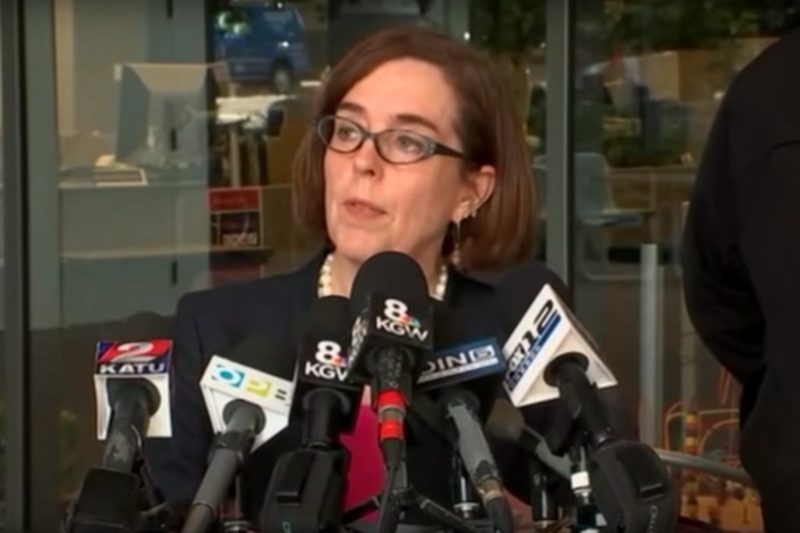Oregon Labor Advocates Push Wage Protections
Democratic Gov. Kate Brown on Thursday unveiled a plan to boost the state minimum wage from $9.25 to $13.50. Separately, activists said they are circulating a proposed ballot measure to raise Oregon’s minimum wage should the governor's effort fail.

Labor issues have taken center stage in Oregon, as state lawmakers contemplate a bevy of new wage protections amid a statewide push to raise the minimum pay rate.
Gov. Kate Brown (D) on Thursday unveiled a plan to boost the state minimum wage from $9.25 to $13.50, and lift Portland’s to $15.52 in 2022.
“The costs of essentials such as food, child care, and rent are rising so fast that wages can’t keep up,” Brown said in a statement. “Many Oregonians working full-time can’t make ends meet, and that’s not right.”
Ahead of the legislative session that begins next month, the Senate Workforce and General Government Committee also discussed at a capitol meeting Wednesday a slate of worker-friendly proposals that include giving employees better access to detailed payroll records, making the failure to pay prevailing wages on publicly funded jobs a felony, and requiring companies with a pattern of wage abuse to put up a bond to ensure the timely payment of earnings.
Michael Dale, executive director of the labor-advocacy group Northwest Workers’ Justice Project, said the proposals, a roster of some of the least controversial provisions that labor leaders have pushed for in the past, will be introduced in February when the Democrat-led legislature returns for a short session.
“It basically moves the ball a little farther down the field,” Dale said of the initiatives in a phone interview Thursday with Rewire. “Any way we can help enforce workers’ rights will be helpful.”
Wage theft costs Oregon workers millions in lost earnings. The Oregon Bureau of Labor and Industries recently announced settlements recovering $2.7 million in unpaid wages for construction workers on state-funded projects, as Public News Service reported.
“Wage theft is a huge problem, a complex problem, and it’s not going to be solved by one silver bullet solution,” Dale said.
He said the draft legislation also calls for excess money in the state’s Wage Security Fund be spent to enforce existing wage laws, rather than being funneled into the state General Fund.
Separately, activists said they are circulating a proposed ballot measure to raise Oregon’s minimum wage to $13.50 an hour by 2018 should the governor’s effort fail.
Andrea Paluso, executive director of Family Forward, part of a coalition backing the wage hike, told the Register-Guard, “We fully intend to take this fight to the ballot and are clearly preparing to do so. The bottom line is that Oregon must raise the minimum wage in 2016.”
An Oregonian working full-time for the current state minimum of $9.25 an hour earns just $19,240 a year, leaving them unable to afford basic necessities, such as shelter, food, and transportation, advocates say.
A handful a bills introduced in 2015 to raise the minimum wage stalled in committee.
Business interests say wage hikes hurt profits and cut hiring, but the advocacy group Our Oregon points to research that suggests small businesses benefit from cost savings, which come from reductions in employee turnover and absenteeism, as well as improved worker performance.
Oregon once enjoyed the second-highest minimum wage of any state, according to the Lund Report, but now trails Massachusetts and California, where the state minimum is $10 an hour. A California ballot initiative to hike the state minimum to $15 per hour is likely to go to voters on the November ballot, as Rewire reported.
